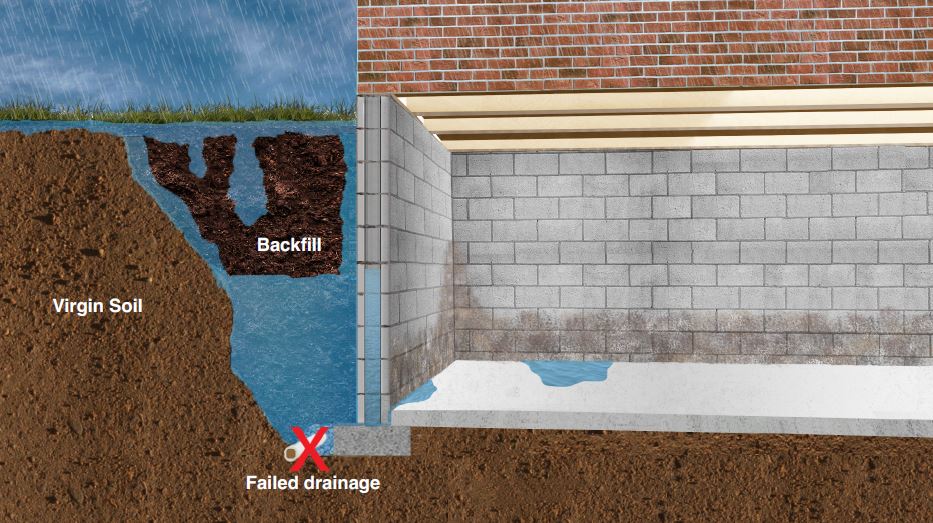Michigan’s climate, with its heavy rainfall, melting snow, and high water table, can pose significant challenges for homeowners, especially when it comes to basement waterproofing. Basement flooding and moisture issues are all too common, but with the right waterproofing solutions, you can protect your home and ensure a dry, safe environment. Here’s everything you need to know about Michigan basement waterproofing:
Understanding Michigan Basement Waterproofing Needs
1. High Water Table:
Michigan’s high water table means that groundwater levels are often close to the surface. This increases the risk of water seepage into basements, especially during periods of heavy rain or snowmelt.
2. Freezing and Thawing:
The state’s fluctuating temperatures can lead to the freezing and thawing of soil around foundations. This movement can cause cracks in basement walls and floors, creating pathways for water to enter.
3. Heavy Precipitation:
Michigan experiences significant rainfall throughout the year, particularly in the spring and summer months. Heavy precipitation can overwhelm drainage systems and lead to basement flooding if not properly managed.
Effective Basement Waterproofing Solutions
1. Interior Drainage Systems:
Interior drainage systems, such as French drains and sump pumps, are effective at channeling water away from the basement and preventing it from accumulating. These systems collect groundwater and direct it to a sump pump, which then pumps the water out of the basement.
2. Exterior Waterproofing:
Exterior waterproofing involves applying waterproof coatings, sealants, and membranes to the outside of the foundation walls to prevent water from penetrating. This approach is particularly effective for preventing water intrusion through cracks and gaps in the foundation.
3. Foundation Crack Repair:
Cracks in basement walls and floors should be repaired promptly to prevent water seepage. Professional contractors can use epoxy injections or hydraulic cement to seal cracks and restore the integrity of the foundation.
4. Window Well Installation:
Window wells provide protection for basement windows against water infiltration. Installing window wells with proper drainage can prevent water from pooling around windows and seeping into the basement.
5. Grading and Landscape Drainage:
Proper grading around the perimeter of the home can help direct water away from the foundation. Additionally, installing landscape drainage features such as swales and dry wells can further reduce the risk of water accumulation near the basement.
Choosing a Basement Waterproofing Contractor in Michigan
1. Experience and Expertise:
Look for contractors with extensive experience in basement waterproofing, particularly in Michigan’s climate. They should have a thorough understanding of local soil conditions and drainage challenges.
2. Certifications and Licensing:
Ensure that the contractor is properly licensed and certified to perform basement waterproofing work. This guarantees that they adhere to industry standards and best practices.
3. Warranty and Guarantees:
Choose a contractor that offers warranties on their workmanship and provides guarantees for the effectiveness of their waterproofing solutions. This ensures that you are protected in case of any issues down the line.
4. Customer Reviews and References:
Read customer reviews and ask for references from past clients to gauge the contractor’s reputation and reliability. A reputable contractor will have positive feedback and satisfied customers.
Conclusion
Michigan basement waterproofing is essential for protecting your home from moisture problems and flooding. By understanding the unique challenges posed by Michigan’s climate and investing in effective waterproofing solutions, you can safeguard your basement and enjoy a dry, healthy living space for years to come.
